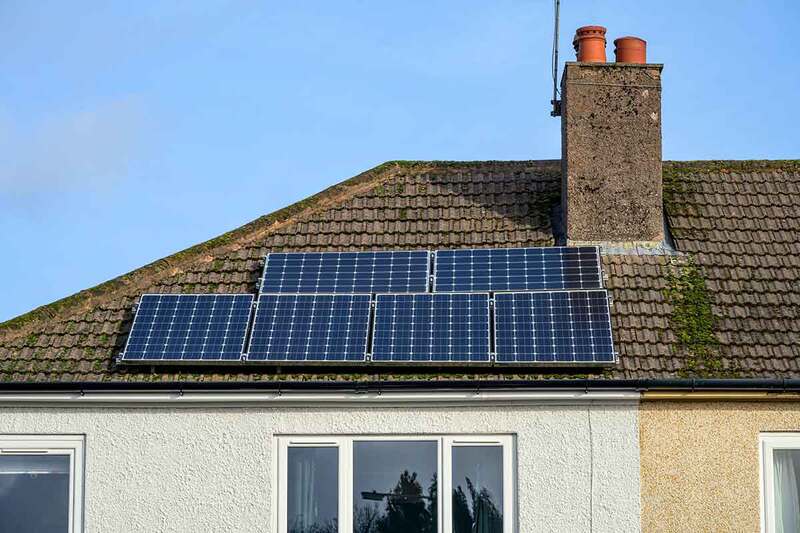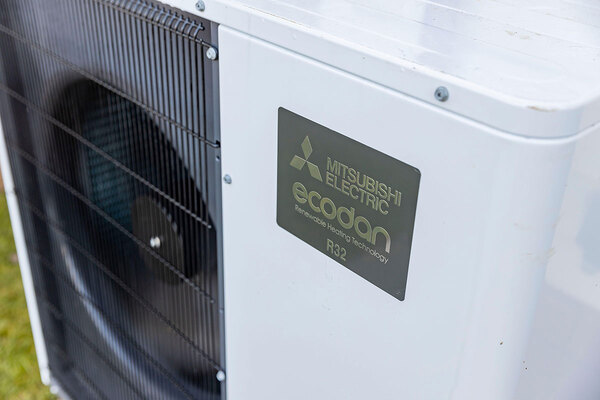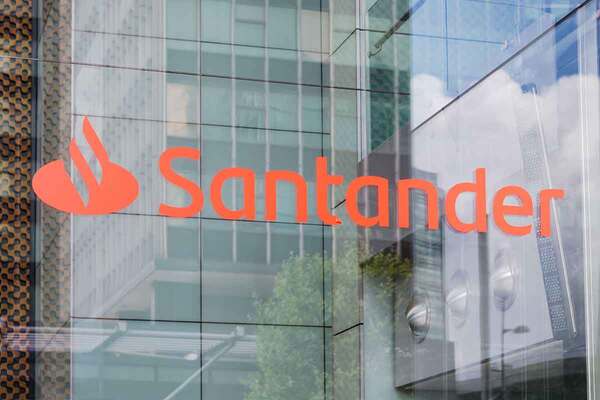Landlords set to be able to apply for £1.2bn of SHDF funds from this summer
The third wave of the government’s Social Housing Decarbonisation Fund (SHDF) is expected to open for applications this summer and will have two new application routes.
Up to £1.2bn will be available through the latest wave, as the government announced in December.
A spokesperson from the Department for Energy Security and Net Zero (DESNZ) confirmed to Social Housing that the department expected to “open applications in the summer”.
In an update with further details of the fund, DESNZ said all grant funding for SHDF Wave 3 projects must be spent by 3 March 2028.
Wave 3 of the SHDF is open to registered providers of social housing, registered charities that own social housing, local authorities and combined authorities.
Several changes have been made to Wave 3, including the introduction of a new cost cap and two new application routes.
The changes come after Selvin Brown, director for net zero buildings – domestic at DESNZ, indicated at the National Housing Federation’s Housing Finance Conference in March that Wave 3 would include “changes” to how funding is allocated.
Cost caps and EPC requirements
There is a new cost cap of £7,500 of grant funding per home for energy-efficiency measures.
Grant recipients are expected to get homes to an Energy Performance Certificate (EPC) rating of Band C, but DESNZ said it accepted that there may be circumstances where “this is not achievable within the cost caps”.
“If this is the case, homes are expected to attain the maximum EPC grade achievable within the cost caps,” the department said.
Application routes
DESNZ said there are two routes to access funding under SHDF Wave 3, the Challenge Fund and strategic partnerships.
The Challenge Fund is expected to suit “the vast majority of grant recipients”, according to the department.
DESNZ said “one of the key principles of this approach” was that all applications that meet the minimum standards of the scheme would be awarded funding. However, if oversubscribed, this may not be the amount of funding requested.
DESNZ said “a small number of grant recipients with a proven track record of successful delivery at scale”, defined as thousands of properties, can access funding through a strategic partnership.
The department said these grant recipients will not be required to provide detail on specific homes and measures until works had been carried out, as part of routine delivery monitoring.
DESNZ said this was to “reflect the capability evidenced by these landlords and to support delivery at scale”. Both individual and consortium applications will be permitted through this route.
Application size
DESNZ said all SHDF Wave 3 applications through the Challenge Fund should include a minimum of 100 eligible social housing properties at EPC band D to G, apart from in the case of small social housing landlords.
The department said small social housing landlords, defined as those which own or manage fewer than 1,000 homes, can apply with fewer than 100 homes. For these landlords, there is no minimum application size.
However, DESNZ said it expected such landlords to “try to reach 100 homes, or to actively consider joining a consortium, given the benefits this can bring, where this is not possible”.
Strategic partnership applicants will be expected to propose projects of “significant scale”, the department added.
Low-carbon heating incentive
Wave 3 has also introduced an optional low-carbon heating incentive for homes on the gas grid.
Up to 10 per cent of homes in an application can gain access to a £20,000 grant per home to install low-carbon heating measures on the gas grid, instead of the usual £7,500 off-the-gas-grid cost cap.
“This grant requires no co-funding, sits outside of the wider co-funding structure of the application, and is additional to what might be included in an application in terms of off-the-gas-grid low-carbon heat measures,” DESNZ said.
CIH welcomes the changes
Matthew Scott, policy and practice officer at the Chartered Institute of Housing (CIH), said there were some “significant positive adjustments” in Wave 3 compared with previous waves.
He said: “The publication of the draft specification and timeline is very welcome and contains some significant positive adjustments from previous waves.
“The new low-carbon heating incentive, creation of a strategic-partnerships route and added flexibility for smaller housing providers show that DESNZ has taken on board feedback from the sector, and should improve delivery over the coming years.”
Previous SHDF waves
The SHDF was launched in 2020 with the promise of £3.8bn over a 10-year period. Three waves of funding have been allocated, following an initial £61m demonstrator fund.
SHDF Wave 1 improved energy performance in up to 20,000 social housing properties, reducing bills and carbon emissions.
SHDF Wave 2.1 awarded £778m of an available £800m of government funding in March 2023 to improve the energy performance of around 90,000 social homes.
SHDF Wave 2.2 then launched as a ‘top-up’ competition to allocate up to £80m of grant funding from April. It announced funding in March 2024 and allocated over £75m.
Sign up for Social Housing’s weekly news bulletin
Social Housing’s weekly news bulletin delivers the latest news and insight across finance and funding, regulation and governance, policy and strategy, straight to your inbox. Meanwhile, news alerts bring you the biggest stories as they land.
Already have an account? Click here to manage your newsletters.
RELATED









